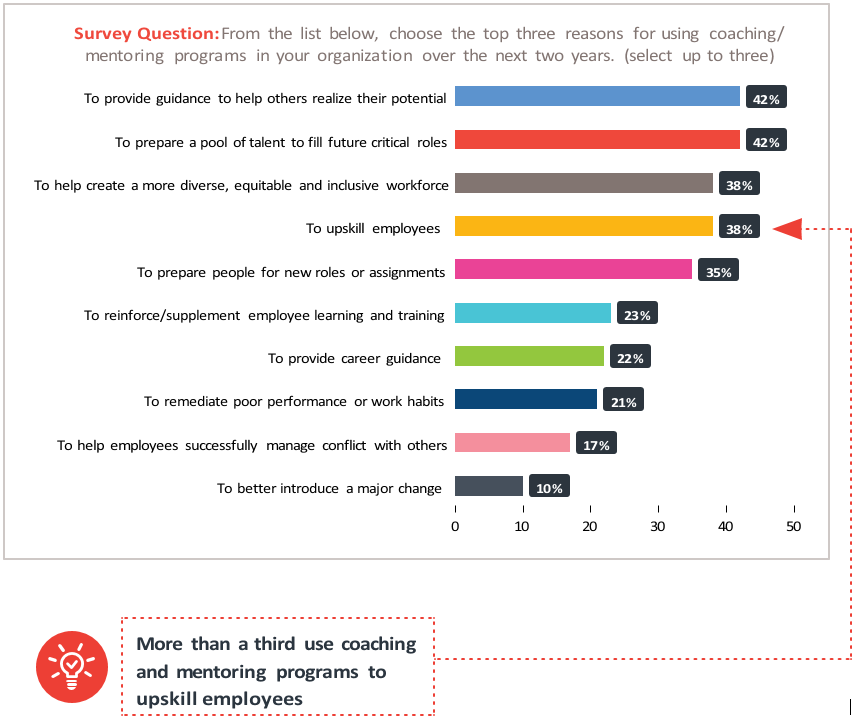Preparing talent for the future and helping employees reach their full potential are the top drivers of coaching/mentoring

Survey participants were asked to choose the top three reasons for using coaching and mentoring programs in their organization over the previous two years. The most common reasons organizations use coaching and mentoring programs are to prepare a pool of talent to fill future roles and to provide guidance to help others reach their potential, both at 42%. A further 38% cite creating a more diverse workplace, the third most frequently mentioned reason. And, 38% say upskilling is a driver of coaching and mentoring, perhaps due to changing business models and priorities brought on by the pandemic. These are all positive, forward looking uses for coaching and mentoring that can lead to increased employee engagement and future organizational readiness.
Only 21% singled out “remediating poor performance or work habits” as a top reason for coaching and mentoring. A skillful coach can potentially turn around a performance issue and avoid disciplinary actions or termination. At the same time, some performance issues could be avoided in the first place if coaches focus on being proactive and preparing people for future success rather than handling an issue after the fact.
The least widely cited response is “to better introduce a major change.” Dr. Deb Hedderly, a professor at Roseman University and experienced executive coach, views this as an oversight. Periods of change are often associated with heightened anxiety. Coaching may not only help people cope with the emotional aspects of change but help them acquire new skills they need to manage change well.
